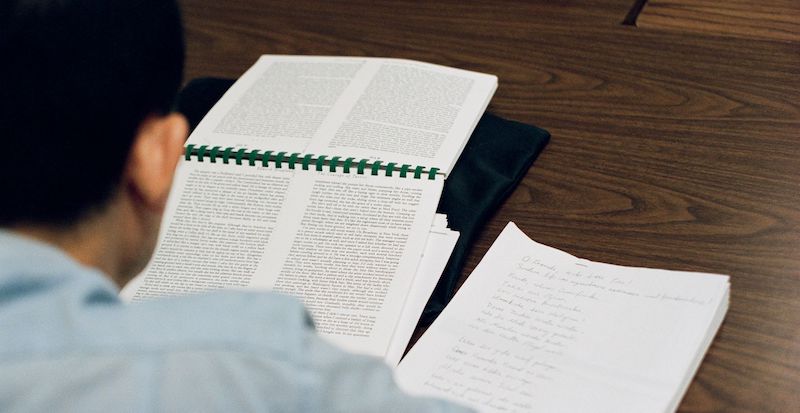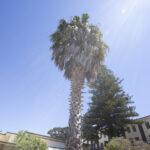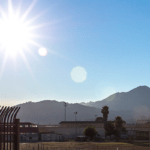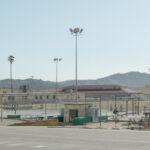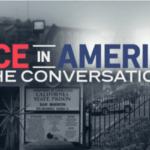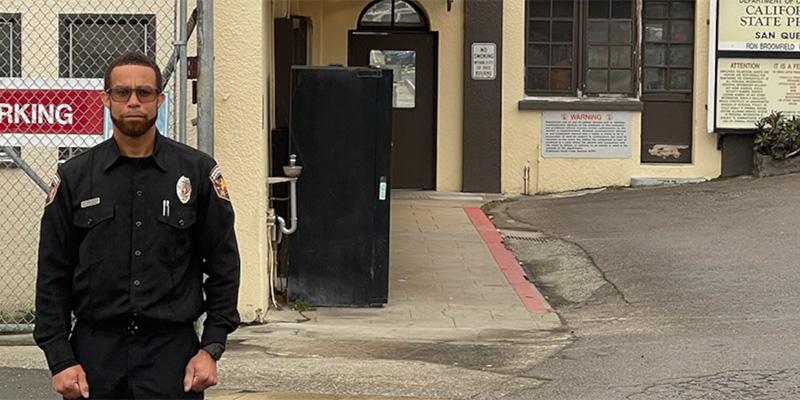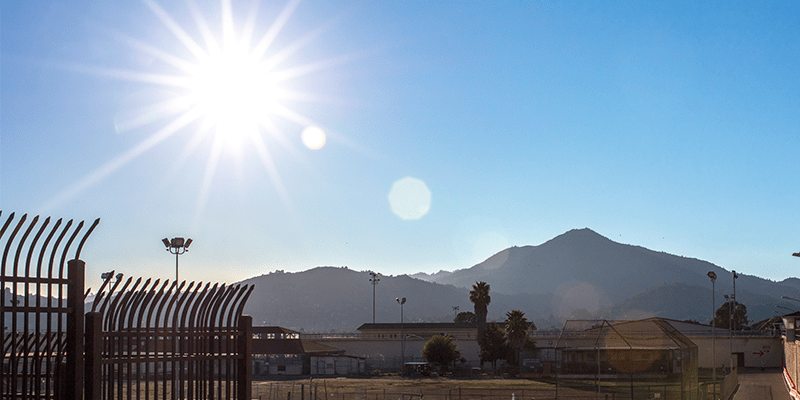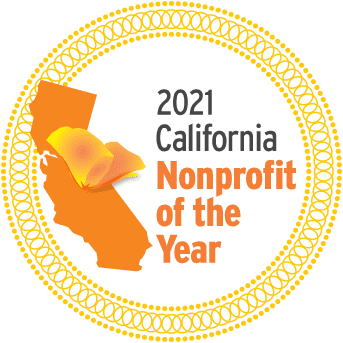After nearly a year of suspended programming, we are thrilled to resume Associate of Arts degree courses to help sustain students’ academic development during this extended period of disruption.
For an eight-week spring term, we are offering 13 one-unit credit correspondence courses that address one of the following learning outcomes: quantitative competency, written communication, critical thinking, or civic and community engagement. A full list of course offerings is available below.
We are also mailing math and writing practice curricula to college preparatory students, and offering a few other non-credit extracurricular opportunities to all students. There are 13 returning faculty facilitating the credit courses and 14 supporting college preparatory work; each course will have a maximum of 30 students.
Though we hope to be back in the classroom in person soon, we are excited to continue providing high-quality education to students at San Quentin in the interim.
The following one-credit correspondence courses will be offered this term:
Landmark U.S. Court Cases
This course is an in-depth study of three landmark court cases, each chosen because it illustrates something central to the U.S. legal system: McFall v. Shimp, a 1978 case wherein the court had to decide whether to force one person to donate bone marrow against their will in order to save the life of another person, Brown v. Board of Ed, a 1953 U.S. Supreme Court case wherein the court decided that racially segregated public schools were unconstitutional, and Riggs v. Palmer, an 1889 case about whether a grandson who murdered his grandfather could inherit his money.
Popular Music & Social Criticism in Modern America
This course explores popular music as social commentary in modern America. Students will look at the role of music in protest and response in recent decades beginning with the civil rights and peace movements of the mid-twentieth century, through the response of Chicano rock, funk, and hip-hop to the issues of the day, and continuing into the twenty-first century and recent developments related to politics and social issues.
Strategies for Activism in U.S. History
What strategies have activists employed throughout the history of the United States to fight for social justice and civic change? This course considers the U.S.’s history of activism from Reconstruction to 2020 with a focus on the approaches adopted by civil rights leaders to not only communicate but also garner support for their causes within a range of movements.
Presidential Inaugural Addresses
On January 20, President Joe Biden delivered his inaugural address at an especially charged moment in the nation’s history. This course asks students to read, reflect on, and write about the civic signals Biden sought to send to his fellow citizens, and how they compare with the signals sent by six previous presidents in their noteworthy inaugural addresses.
Statistics of Vaccinations and Herd Immunity
This course explores how viruses such as COVID-19 spread, how vaccinations help us slow the spread to achieve herd immunity, and how statistics help us understand it all.
Future Vision: Science Fiction Utopias
Drawing upon science fiction and other speculative writings, students will explore and critically examine problems and possibilities of how social systems might be constructed, and imagine parameters towards a future society. Readings include work by authors such as Octavia Butler, Ursula Le Guin, Jose Saramego, Ray Bradbury, Jorge Luis Borges, Pamela Sargent, Mary Doria Russell.
Fire, Forests, and Forest Fires
This is an exploratory survey of the literature of forest wildfires, firefighting experiences, fire management, and policy, past, present, and future. Readings tell the stories of smoke jumpers, heroic and tragic, Indigenous legends and native land practices, as well as a discussion of California forest and fire ecology.
Climate Change
This course introduces the basic science of climate change. Students will discuss how carbon dioxide affects the climate and humanity’s role in the production of carbon dioxide.
The Legacies of “Redlining” and “White Flight”
Redlining is the illegal practice of refusing to provide financial services to consumers based on the area where they live. This course will introduce students to a mix of historiographical writings, some fiction and poetry, and recent studies to offer a brief overview over redlining then and now, including maps illustrating the practice. These maps hold the key to understanding why American cities today look the way they do—from the distribution of poverty and environmental pollutants to gentrification, COVID-deaths, and police killings.
Thinking about Thinking: Introspective Psychology
Introspective Psychology is a method of studying conscious experience by examining our own thoughts, images, and feelings. Through assignments and readings, students will practice this method and learn about its place in the history of psychological science.
Principles of Rhetoric
In this course, students will study the fundamental principles of rhetoric, analyzing how authors and speakers convey a message to an intended audience. Using these techniques, students will write a persuasive essay on a topic of their choice.
Poetry in Times of Crisis
Students will explore various poets who in different historical moments address moments of political and cultural crisis, from war and revolution to civil rights and environmental struggles, combining both literary analysis as well as their own creative writing.
The Personal Essay
In this course, students will read, contemplate, and reread one personal essay a week. The capstone project will be to write a personal essay of their own.
